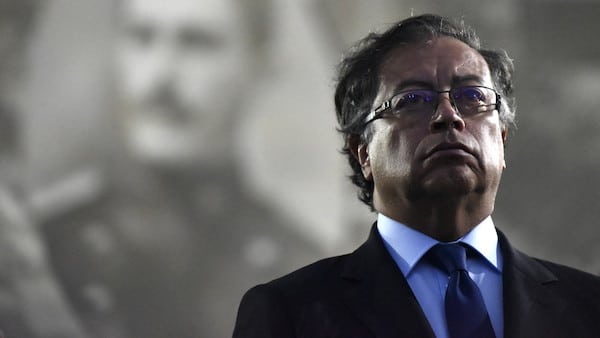Colombian President Gustavo Petro has shared an analysis on the current situation of the cocaine market structure, warning that this illicit business has moved to Ecuador after its collapse in the U.S. due to the fentanyl boom.
“The areas of cultivation of coca plants and the location of laboratories sought to trace routes northward along the Pacific Ocean or to the Caribbean. The routes went through Central America, the Caribbean islands and Mexico to the U.S.,” he detailed on Friday in his X account.
In this context, the president explained that these routes are beginning to change progressively, indicating that they are now heading south.
They are leaving the coasts and penetrating the other side of the Andes mountain range towards the Amazon jungle.
“Today the largest coca growing area is not located in Tumaco in the Pacific region of Nariño, nor in Catatumbo. The new zone with the largest cocaine production in the world is located in a 10-kilometer strip along the Colombian-Ecuadorian border, on the Colombian side,” Petro explained.
From this area, far from the sea, the new routes are traced along the rivers and head towards Brazil,
to fill the Brazilian market, move on to Africa and from there to Europe. Then the other route is from Ecuador and Peru to move on to East Asia, Japan and Australia.
The fentanyl boom
Petro points out that the cocaine market has collapsed in the U.S., replaced by the fentanyl market, which, he says, leaves more than 100,000 dead a year. “It is for this reason that the price of coca leaf in the areas dedicated to export to the U.S. has fallen and the armed organizations based there replace the loss of profits from cocaine with illicit gold, extortion and kidnapping against the same population of the area,” he said.
“This is why from being a peaceful country, Ecuador has surpassed Colombia in violence, and perhaps this is why they assassinated presidential candidate Fernando Villavicencio,” he said, adding that probably with the new geography of the cocaine market, Paraguayan and Uruguayan mafias seek to build an illicit economy in Bolivia and that now cocaine laboratories are located in Europe “to compete with quality in the face of the invasion of chemical drugs and fentanyl,” he said.
The leader of Colombia Humana emphasizes that, even if the geography changes, the failure of the drug war worsens. In view of this, he announced that his government is going to prepare to counteract the consumption of fentanyl among the youth. To this end, he proposes the installation of “free civil detection posts for consumers” in nightclub areas, in addition to promoting education on the deadly effects of this drug.
“From the marijuana of welfare capitalism and its rebellious youth, we moved on to cocaine, the drug of competitiveness and neoliberalism; and now we are entering the drug of death, fentanyl: the drug of capitalism, of the climate crisis and war,” he concluded.
Source: RT translation Resumen Latinoamericano – English

